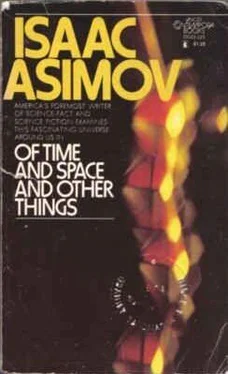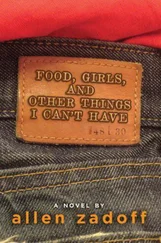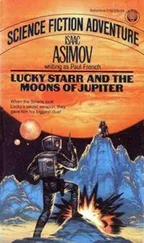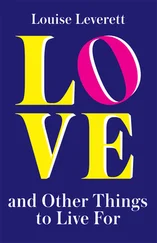Isaac Asimov - Of Time and Space and Other Things
Здесь есть возможность читать онлайн «Isaac Asimov - Of Time and Space and Other Things» весь текст электронной книги совершенно бесплатно (целиком полную версию без сокращений). В некоторых случаях можно слушать аудио, скачать через торрент в формате fb2 и присутствует краткое содержание. Год выпуска: 1972, ISBN: 1972, Издательство: Lancer Books, Жанр: Прочая научная литература, на английском языке. Описание произведения, (предисловие) а так же отзывы посетителей доступны на портале библиотеки ЛибКат.
- Название:Of Time and Space and Other Things
- Автор:
- Издательство:Lancer Books
- Жанр:
- Год:1972
- ISBN:ISBN: 0-447-33023-3
- Рейтинг книги:4 / 5. Голосов: 1
-
Избранное:Добавить в избранное
- Отзывы:
-
Ваша оценка:
- 80
- 1
- 2
- 3
- 4
- 5
Of Time and Space and Other Things: краткое содержание, описание и аннотация
Предлагаем к чтению аннотацию, описание, краткое содержание или предисловие (зависит от того, что написал сам автор книги «Of Time and Space and Other Things»). Если вы не нашли необходимую информацию о книге — напишите в комментариях, мы постараемся отыскать её.
Of Time and Space and Other Things — читать онлайн бесплатно полную книгу (весь текст) целиком
Ниже представлен текст книги, разбитый по страницам. Система сохранения места последней прочитанной страницы, позволяет с удобством читать онлайн бесплатно книгу «Of Time and Space and Other Things», без необходимости каждый раз заново искать на чём Вы остановились. Поставьте закладку, и сможете в любой момент перейти на страницу, на которой закончили чтение.
Интервал:
Закладка:
In the latitudes in which most of humanity live' how ever, both daytime and night change in length during the year (one growing longer as the other grows shorter) and there is, therefore, a certain convenience in using daytime plus night as a single twenty-four-hour unit of time. The combination of the two, the day, is of nearly constant duration.
It is very annoying that "day" means both the sunlit portion of time and the twenty-four-hour period of daytime and night together. This is a completely unnecessary shortcoming of the admirable English language. I understand that the Greek language contains separate words for the two entities. I shall use "daytime" for the sunlit period and "day" for the twenty-four-hour period.
Well, then, should the day start at sunrise or at sunset?
You might argue for the first, since in a primitive society that is when the workday begins. On the other hand, in that same society sunset is when the workday ends, and surely an ending means a new beginning.
Some groups made one decision and some the other.
The Egyptians, for instance, began the day at sunrise, while the Hebrews began it at sunset.
The latter state of affairs is reflected in the very first chapter of Genesis in which the days of creation are de scribed. In Genesis 1:5 it is written- "And the evening and the morning were the first day." Evening (that is, night) comes ahead of morning (that is, daytime) be cause the day starts at sunset.
This arrangement is maintained in Judaism to this day, and Jewish holidays still begin "the evening before' "
Christianity began as an offshoot of Judaism and remnants of this sunset beginning cling even now to some non Jewish holidays.
The expression Christmas Eve, if taken literally, is the evening of December 25, but as we all know it really means the evening of'Dccember 24-which it would natu rally mean if Christmas began "the evening before" as a Jewish holiday would. The same goes for New Year's Eve.
Another familiar example is All Hallows' Eve, the eve ning of the day before All Hallows' Day, which is given over to the commemoration of all the "hallows" (or "saints"). All Hallows' Day is on November 1, and All Hallows' Eve is therefore on the evening of October 31..
Need I tell you that AU Hallows' Eve is better known by its familiar contracted form of "Halloween."
As a matter of fact, though, neither.sunset nor sunrise is now the beginning of the day. The period from sunrise to sunrise is slightly more than 24 hours for half the year as the daytime periods grow shorter, and slightly less than 24 hours for the remaining half of the year as the daytime periods grow longer. This is also true for the period from sunset to sunset.
Sunrise and sunset change in opposite directions, either approaching each other or receding from each other, so that the middle of daytime (midday) and the middle of night (midnight) remain fixed at 24-hour intervals throughout the year. (Actually, there are minor deviations but these can be ignored.)
One can begin the day at midday and count on a steady 24-hour cycle, but then the working period is split between two different dates. Far better to start the day at midnight when all decent people are asleep; and that, in fact, is what we do.
Astronomers, who are among the indecent minority not in bed asleep at midnight, long insisted on starting their day at n-fidday so as not to break up a night's observation into two separate-dates. However, the spirit of conformity was not to be withstood, and in 1925, they accepted the in convenience of a beginning at midnight in order to get into step with the rest of the world.
All the units of time that are shorter than a day depend on the day and offer no problem. You start counting the hours from the beginning of the day; you start counting the minutes from the beginning of the hour; and so on.
Of course, when the start of the day changed its posi tion, that affected the counting of the hours. Originally, the daytime and the night were each divided into twelve hours, beginning at, respectively, sunrise and sunset. The hours changed length with the change in length of daytime and night so that in June (in the northern hemisphere) the daytime was made up of twelve long hours and the night of twelve short hours, while in December the situation was reversed.
This manner of counting the hours still survives in the Catholic Church as "canonical hours." Thus, " prime" ("one") is the term for 6 A.M. "Tierce" ("three") is 9 A.M., "sext" ("six") is 12 A.M., and "none" ("nine") is 3 P.M. Notice that "none" is located in the middle of the afternoon when the day is warmest. The warmest part of the day might well be felt to be the middle of the day, and the word'was somehow switched to the astronomic midday so that we call 12 A.M. "nOon.IY
This older method of counting the hours also plays a part in one of the parables of Jesus (Matt. 20:1-16), in which laborers are hired at various times of the day, up to and including "the eleventh hour." The eleventh hour referred to in the parable is one hour before sunset'when' the working day ends. For that reason, "the eleventh hour" has come to mean the last moment in which something can be done. 'ne force of the expression is lost on us, how ever, for we think of the eleventh hour as being either 11 A.M. or 11 P.m., and 11 A.M. is too early in the day to begin to feel panicky, while II P.m. is too late-we ought to be asleep by then.
The week originated in the Babylonian calendar where one day out of seven was devoted to rest. (The rationale was that it was an unlucky day.)
The Jews, captive in Babylon in the sixth century B.C., picked up the notion and established it on a religious basis, making it a day of happiness rather than of ill fortune. They explained its beginnings in Genesis 2:2 where, after the work of the six days of creation-"on the seventh day God ended his work wbich'he had made; and he rested on the seventh day."
To "those societies which accept the Bible as a book of special significance, the Jewish "sabbatb" (from the Hebrew word for "rest") is thus defined as the seventh, and last, day of the week. This day is the one marked Saturday on our calendars., and Sunday, therefore, is the first day of a new week. All our calendars arrange the days in seven colunins with Sunday first and Saturday seventh.
The early Christians began to attach special significance to the first day of the week. For one thing, it was the "Lord's day" since the Resurrection had taken place on a Sunday. Then, too, as time went on and Christians began to think of themselves as something more than a Jewish sect, it became important to them to have distinct rituals of their own. In Christian societies, therefore, Sunday, and not Saturday, became the day of rest. (Of course, in our modem effete times, Saturday and Sunday are both days of rest, and are lumped together as the "weekend," a period celebrated by automobile accidents.)
The fact that the work week begins on Monday causes a great many people to think of that as the first day of the week, and leads to the following children's puzzle (which I mention only because it trapped me neatly the first time I heard it).
You ask your victim to pronounce t-o, t-o-o, and t-w-o, one at a time, thinking deeply between questions. In each case he says (wondering what's up) "tooooo."
Then you say, "Now pronounce the second day of the week" and his face clears up, for he thinks he sees the trap. He is sure you are hoping he will say "toooosday" like a lowbrow. With exaggerated precision, therefore, he says "tyoosday."
At which you look gently puzzled and say, "Isn't that strange? I always pronounce it Monday."
The month, being tied to the Moon, began, in ancient times, at a fixed phase. In theory, any phase will do. The month can start at each full Moon, or each first quarter, and so on. Actually, the most logical Way is to begin each month with the new Moon-that is, on that evening when the first sliver of the growing crescent makes itself visible immediately after sunset. To any logical primitive, a new Moon is clearly being created at that time and the month. should start then.
Читать дальшеИнтервал:
Закладка:
Похожие книги на «Of Time and Space and Other Things»
Представляем Вашему вниманию похожие книги на «Of Time and Space and Other Things» списком для выбора. Мы отобрали схожую по названию и смыслу литературу в надежде предоставить читателям больше вариантов отыскать новые, интересные, ещё непрочитанные произведения.
Обсуждение, отзывы о книге «Of Time and Space and Other Things» и просто собственные мнения читателей. Оставьте ваши комментарии, напишите, что Вы думаете о произведении, его смысле или главных героях. Укажите что конкретно понравилось, а что нет, и почему Вы так считаете.












